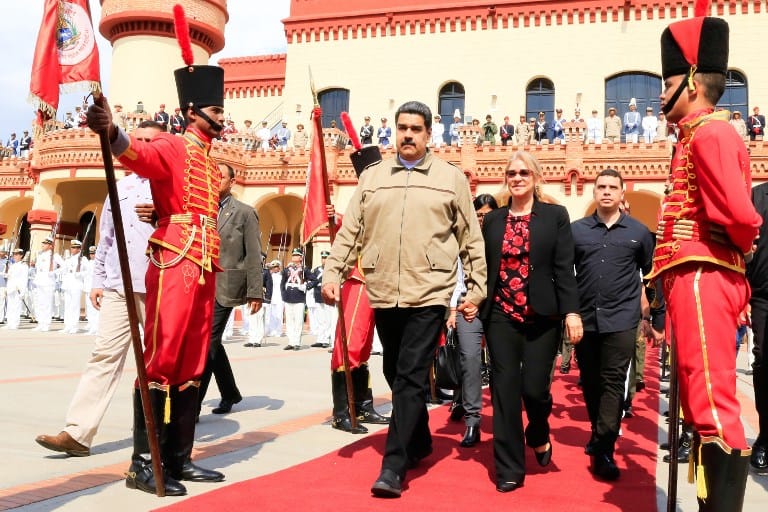Signatory countries of the Inter-American Treaty of Reciprocal Assistance (TIAR) on Tuesday increased pressure against Venezuela by approving a range of sanctions that will affect those close to President Nicolás Maduro.
Twenty-nine people, including Diosdado Cabello — among the most powerful person in the Venezuelan government — will face economic sanctions and “entry and transit restriction measures” in the treaty member states, a newsletter from the Colombian Foreign Ministry said.
The Organization of American States (OAS), the depository body of the agreement, published the list of those sanctioned and the meeting minutes with the points approved in the plenary session.
“It is the first list that has been presented. Those 29 people and their families will not be able to open any bank account in any of the countries, they will not be able to go through the airports of those countries and there are several others that will also be sanctioned at the next meeting,” Carlos Trujillo, US ambassador to the OAS, told the media.
A source from the continental agency, consulted by AFP, said that “the sanctions will always depend on the legal systems” of each country.
The meeting, chaired by Colombian Foreign Minister Claudia Blum, was attended by delegates from Argentina, Brazil, Chile, Costa Rica, El Salvador, Guatemala, Haiti, Honduras, Panama, Paraguay, Peru, the Dominican Republic, the United States and the representative of the Venezuelan opponent Juan Guaidó, recognized as president in charge by 50 countries.
The details of the internal discussion and the position of each country in this regard are not known.
The process that resulted in the sanctions began on September 23, when 16 of the 19 member countries of the TIAR resolved to identify entities and people associated with the Maduro government involved in illegal activities and linked to transnational organized crime networks.
During the meeting, the president of Colombia, Iván Duque, asked for more firmness against what he considers “a threat to an entire region.” He ruled out the “use of force.”
Meeting of ‘puppets’
The Venezuelan president, Nicolás Maduro, soon reacted.
“The TIAR meeting has been a failure. It has been a meeting of puppets, of clowns,” he exclaimed in a speech transmitted on a mandatory basis by radio and television.
The United States, which is leading the international campaign to remove the Venezuelan president — whom it considers a dictator — from power, had already imposed punitive measures against more than 100 officials and former officials of Venezuela, including Maduro. Cabello also faces an accusation of drug trafficking.
Colombia, which seconded the United States in the diplomatic encirclement against Maduro, also banned the president’s entry and 200 of his “collaborators” into the country in January.
Maduro called Duque a “moron” and questioned his concern for Venezuela when he faces a wave of protests in Colombia.
Under the TIAR, also known as the Treaty of Rio for its adoption in that city in 1947, the foreign ministers can take measures ranging from the rupture of diplomatic relations to the use of the armed force.
Of the nearly 4.5 million people who have fled Venezuela, 1.4 million are in Colombia.






